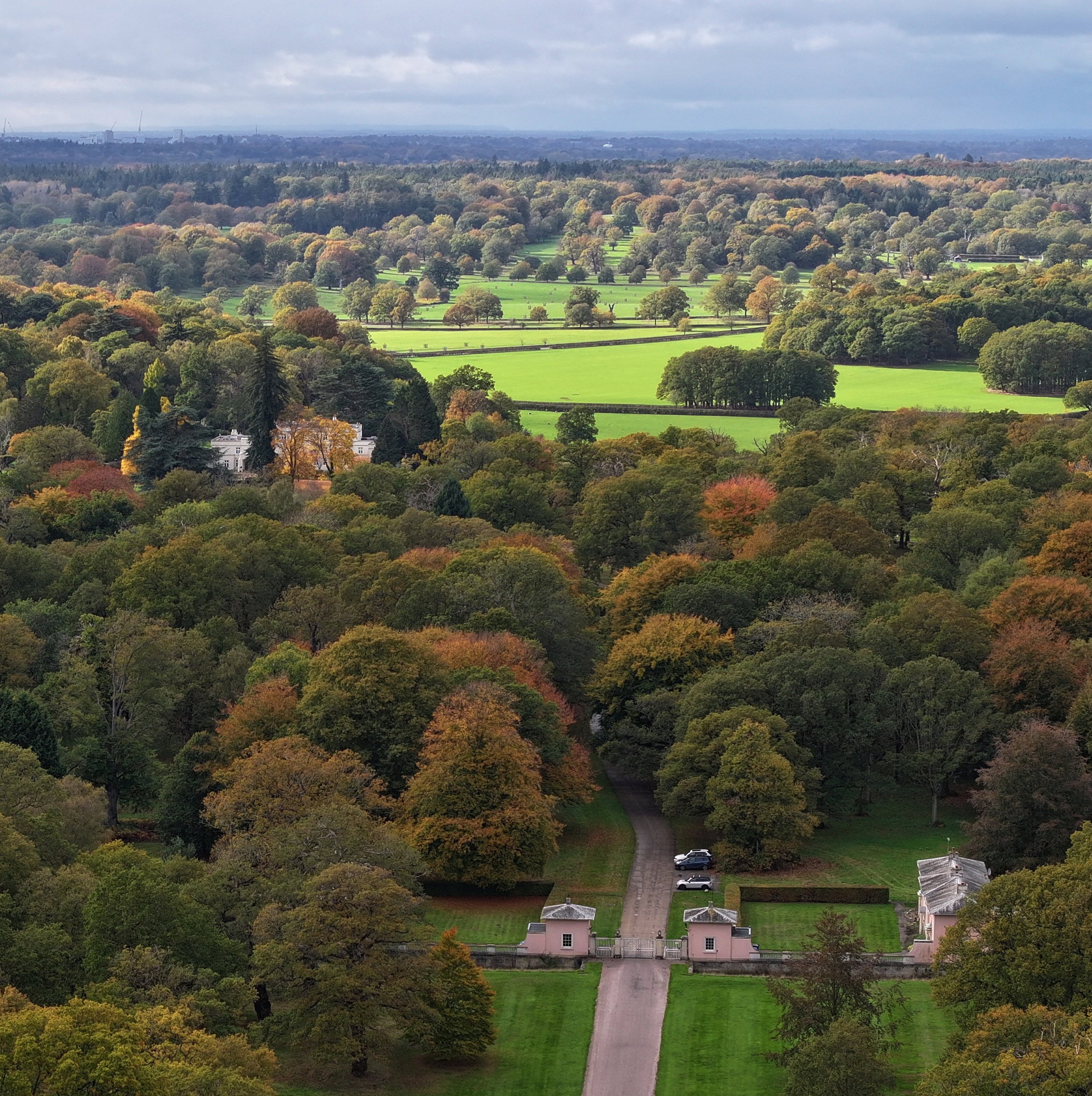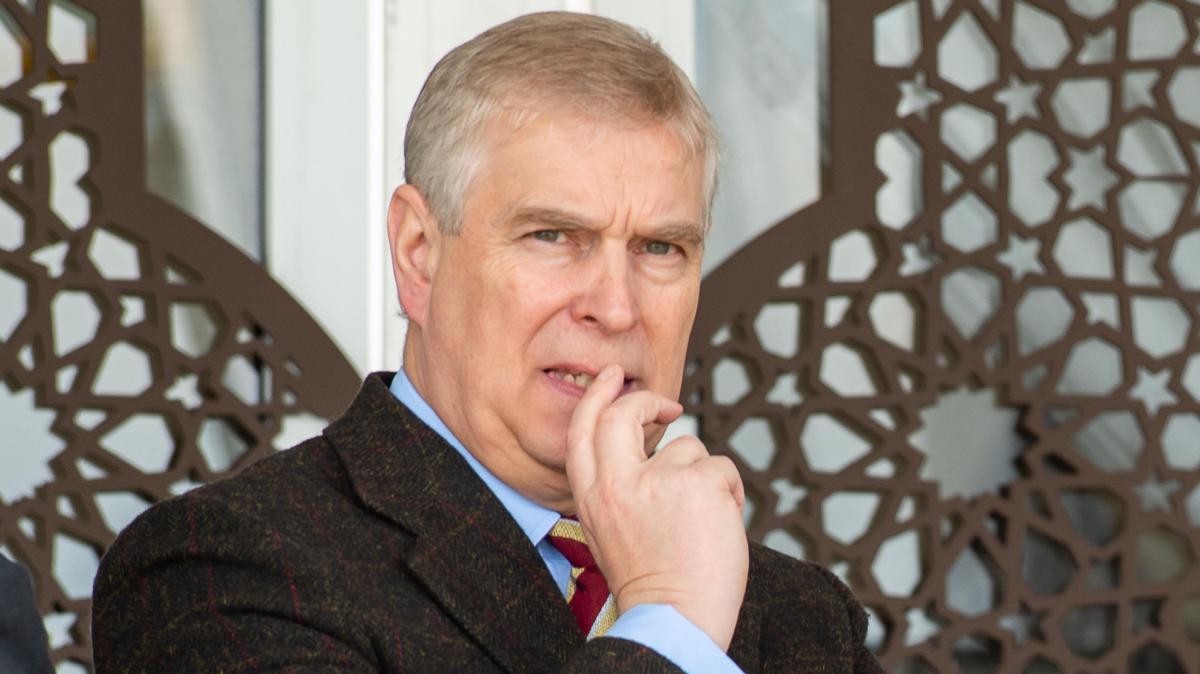Prince Andrew is in talks with Buckingham Palace to vacate Royal Lodge, it has been claimed.
To get him to move, the King may be required to offer compensation and alternative living arrangements, most likely in one of his private homes.
Since The Times obtained an unredacted copy of the lease to Royal Lodge on Tuesday, pressure has been mounting on Andrew to move out.
The lease revealed that Andrew was entitled to live in the 30-room mansion on a peppercorn rent for 75 years, having paid at least £8.5 million for the lease and refurbishments.
It also showed that the prince received the same legal protections afforded to all residential leaseholders and that he could not be turfed out by his landlord, the Crown Estate, unless he allowed the estate to fall into disrepair.
In discussions this week, reported in The Daily Telegraph, Andrew is said to have pleaded that he still has 53 years left on the lease and claimed to have spent millions more on the upkeep over two decades.
Royal sources are reported to have said that there is a sense of inevitability that Andrew will have to move out because criticism is unlikely to die down while he is living in splendour. It is not, however, clear where he would live instead or how much compensation he would receive.

The entrance to Royal Lodge
REUTERS
Under the terms of the lease, he would be entitled to a little more than £500,000 from the Crown Estate if he moved now, in compensation for the money that he paid to refurbish the house between 2003 and 2005. Any additional sums would most likely have to come from the King’s private resources and would create a fresh public relations headache for the monarch.
The same could be true of his new living arrangements. Andrew is said to be resistant to being exiled to a property on either the Sandringham Estate in Norfolk or Balmoral in Scotland away from his family, while it is feared a move to Windsor Castle or Buckingham Palace would be seen as a reward funded by the public purse.
The King had previously encouraged Andrew to move to Frogmore Cottage, a four-bedroom home renovated by Harry and Meghan, which sits inside the Windsor security cordon.

Andrew with the King on the day of the funeral of Katharine, Duchess of Kent, in London last month
TOBY MELVILLE/REUTERS
On Friday, documents filed by Andrew and his former wife Sarah Ferguson to remove their titles became public on Companies’ House and a banner linked to the prince’s membership of the Order of the Garter was also removed from St George’s Chapel at Windsor Castle.
Court documents revealed that the prince was paid tens of thousands of pounds by a businessman tied to a company that ripped off pensioners. Documents obtained from the High Court by the BBC show that Andrew received £60,500 from Adrian Gleave in December 2019, just a few weeks after the disastrous BBC Newsnight interview which led to his withdrawal from public life.
An “agreed statement of facts signed by or on behalf of the Duke and Duchess, Mr Gleave and Alphabet” stated that Gleave’s company, Alphabet Capital, had “previously made, and might in the future make, substantial payments to HRH Prince Andrew the Duke of York”, the BBC reported.
• Keir Starmer backs inquiry into Prince Andrew over Royal Lodge
The revelations emerged in a long-running alleged money laundering case unrelated to Andrew and his family. Three years ago, it emerged that both Ferguson and their daughters had also received money from Alphabet. One £750,000 payment was described to bankers as a wedding gift for Princess Beatrice.
Gleave, a caravan park tycoon, was a director of SVS Securities, which was ordered to close down by regulators for pension mis-selling.
He held the role at SVS between January 2017 and May 2019, and the company appointed administrators in September 2019. The Financial Conduct Authority found the company ran “a tangled web which concealed the fact that customers’ pension money was being invested into high-risk bonds”, adding that SVS “repeatedly prioritised income for itself and its associates” with “life-changing consequences for consumers”. The FCA took individual action against three bosses, but not Gleave.
• The Crown Estate: how does it work and who owns Royal Lodge?
At the end of a bruising week for Andrew, royal communications experts were split on the lasting impact on the family. One royal insider claimed that it was a “bad move” to take Andrew’s titles before the King’s historic trip to the Vatican to pray alongside the Pope.
“All it did was produce four days worth of stories,” they said. “It would have been better to announce it after the Vatican visit. The King looked like he was being decisive, but then two days later he looks like he’s not being decisive enough.”
Andrew Lownie, who has written a book investigating Andrew’s finances, agreed. “Public opinion is way ahead of the palace and the government, rather like when Diana died,” he said, describing it as the “biggest crisis for the monarchy since the abdication”. He added: “They need to get ahead of the story and be much more ruthless. This death by 1,000 cuts isn’t going to work.”
He believes that Andrew should make himself available as a witness to law enforcement agencies in the United States, as well as victims’ lawyers.
The secrecy around Andrew’s finances in particular has become another lightning rod for public anger. Baroness Hodge of Barking, the chair of the public accounts committee between 2010 and 2015, said on Friday: “There’s a lot of money floating around and no proper accountability. It does not serve them or the institution well, and therefore does not serve Britain well.”
The images from the Vatican were a timely reminder of the soft power the royal family provides Britain.

Pope Leo XIV meets the King and Queen at the Apostolic Palace in the Vatican City
SIMONE RISOLUTI/VATICAN MEDIA
For the King’s supporters, seeing a supreme governor of the Church of England pray alongside the leader of the Catholic Church for the first time in 500 years — since the Reformation — put the Andrew row into perspective.
Dickie Arbiter, the press spokesman for Queen Elizabeth II from 1988 until 2000, said that the working royals are “getting on with the job”. “One rotten egg in the basket doesn’t mean the whole basket is rotten,” he said. “You look at the visit to the Vatican, which has achieved a high level of success, with a lot of coverage both in print and the digital media.
“Every family has issues and deals with it in their own way, but unfortunately this issue is very public and spread over every newspaper. There is an element of sympathy [from the public] — Andrew is a law unto himself.”
Andrew has been approached for comment.

